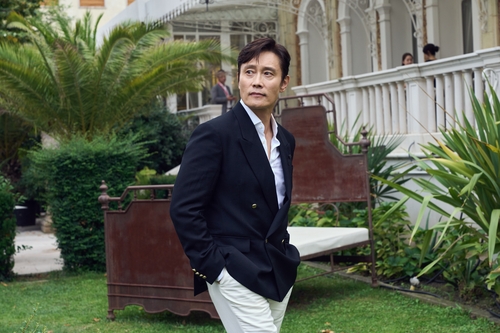Park Chan-wook's new film 'Eojjeolsuga eopda' (roughly 'It Can't Be Helped') was invited to the competition at the 82nd Venice International Film Festival.
Lee Byung-hun stars, supported by top Korean actors Son Ye-jin and Lee Sung-min.
The festival entry signals broader global recognition and potential expansion of networks for Korean cinema.
However, debates remain over expectations, cultural interpretation, and the balance between artistry and commercial pressures.
Overview
The basic fact is simple.
Park Chan-wook's latest feature, 'Eojjeolsuga eopda' (roughly 'It Can't Be Helped'), was officially selected for the competition program at the 82nd Venice International Film Festival and received its world premiere on the Lido in late August 2025.
Lee Byung-hun leads the production, joined by Son Ye-jin and Lee Sung-min—names familiar to domestic and international audiences alike.
This marks the first time in 13 years that a Korean film has entered Venice's competition, an achievement widely noted in film industry coverage.
Early screenings drew positive press and audience reactions, and talk of the Golden Lion (Venice's top award) quickly followed.
Put another way, the invitation carries institutional weight.
The Venice International Film Festival, founded in 1932, is the oldest international film festival; being in competition is often read as proof of a film's artistic standing and international interest.
At the Lido, Lee Byung-hun said the local response made him appreciate the international reach of Korean culture.

Key issues
The debate centers on three related questions.
First: does this selection strengthen the international standing of Korean cinema? Park Chan-wook's name and Lee Byung-hun's star power shape how the film will be received abroad, influencing critics' frames and festival programmers' interest.
Second: can culturally specific moods and subtle storytelling cross linguistic and cultural boundaries intact? Sometimes a local emotional nuance does not translate easily, and that gap can create divergent responses between critics and general audiences.
Third: how do artistic aims and commercial realities interact? Winning at a major festival does not guarantee box-office success, but accolades often change distribution deals, investor appetite, and marketing approaches.
Those financial consequences affect producers and creative teams and, in turn, the sector's broader economic stability.
Competing views
Supporters make a clear case.
From a positive angle, selection for Venice's competition is a step up for Korea's film brand.
Park Chan-wook's direction combined with Lee Byung-hun's performance signals artistic ambition recognized on a major international stage.
That recognition can create more opportunities: partnerships with global streaming platforms, foreign investment, and co-productions may follow.
Meanwhile, the expanded international network helps directors, actors, and crew access wider job opportunities and creative freedom over time.
On the other hand, critics raise reasonable concerns.
High expectations and intense scrutiny can become psychological pressure on both the film and its cast; international attention is not an automatic measure of artistic worth.
Moreover, cultural distance can lead to misreadings of tone or intent—using foreign reception as the primary standard risks distorting the work's original meanings.
Finally, a festival- and awards-driven frame can push teams toward short-term results at the expense of long-term creative investments and artistic autonomy.
In-depth analysis and implications
Look at the industrial ripple effects.
First, this is part of a cumulative momentum for Korean content (so-called K-content). Global streaming hits—such as Netflix's internationally successful series—have created a stronger baseline of curiosity that festivals can amplify.
Second, attention from Venice affects the financing and distribution chain. Festival buzz can change the terms of distribution deals and attract overseas investment, which in turn reshapes a production company's financial planning.
Producers therefore face a strategic choice: balance short-term returns against building long-term brand equity.
Third, there is a cultural diplomacy effect (soft power). Festival praise and awards can raise a country's profile and help related sectors—tourism, music, licensed merchandise—benefit over time.
Fourth, the domestic labor market and creative ecosystem may shift: international success increases demand for experienced crews and actors, which could raise wages and influence career mobility.
That movement can improve industry stability in the long run, but it can also create gaps if skilled workers move to international projects.
Finally, at an individual level, actors like Lee Byung-hun may see changes in pay, sponsorship opportunities, and the kinds of projects offered to them—outcomes that ripple back to the domestic market.
Conclusion
A balanced view is necessary.
Park Chan-wook's 'Eojjeolsuga eopda' and Lee Byung-hun's presence in Venice symbolize that Korean cinema is moving onto wider international stages.
However, the event also raises fresh questions about cultural interpretation, financial strategy in production and distribution, and how to preserve artistic integrity while pursuing global attention.
Readers should not reduce this moment to brief excitement; instead, place it within the industry's economic and cultural context and watch how it affects long-term investment and creative conditions.
Watch closely for how this Venice selection influences funding patterns, career trajectories, and the stability of the Korean film ecosystem.
Do you think this Venice showing will change Korea's film industry stability and future investment patterns?